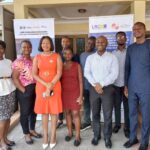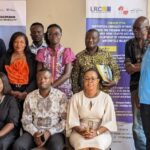The LRC has participated in a two-week second regional offering of the Global Road Safety Leadership Course (GRSLC) in Nairobi, Kenya. The course which was attended by Enock Jengre, Project Officer of the LRC brought together 64 participants from 23 countries around the globe. The programme was officially launched on Sunday, 4th March, 2018 by Professor Agnes Binagwaho, former Health Minister of Rwanda and Vice Chancellor of the University of Global Health Equity, Rwanda.
The first week of the GRSLC consisted of sessions conducted by the Global Road Safety Partnership (GRSP), Johns Hopkins International Injury Research Unit (JH-IIRU), World Health Organization (WHO), and the National Association of City Transportation Officials (NACTO). Presenting on the role of behavioural risk factors in road traffic death and serious injury, Dr. Margie Peden from the World Health Organization (WHO) discussed the importance of addressing road safety behavioural risk factors including the use of seat-belts, helmets and child restraints as well as reducing drink driving. Besides these sessions, participants also attended a field trip to the Machakos Level 5 Hospital in Machakos, Kenya which focused on witnessing post-crash care and response.
The second week focused on an overview of how advocacy can influence the development and effective implementation of strong road safety laws. An expert from the World Bank Global Road Safety Facility, Dr. Soames Job led participants through the role of infrastructure in road safety, including detailed strategies to encourage political support to fund evidence-based initiatives. Jessica Truong from the Global New Car Assessment Programme (Global NCAP) also detailed the role of safe vehicles in preventing deaths and serious injuries, including their star safety rating system for new vehicles. Dr. Judy Fleiter, the Global Manager of GRSP took participants through vulnerable road users. She indicated that road safety has become a global concern and a human rights issue, and that majority of road crashes occur in low and middle income countries. She therefore called on governments to prioritize road safety issues on their agenda to have safer roads for all road users.
The training programme organized by Johns Hopkins University, Bloomberg Philanthropies, GRSP and the International Federation of Red Cross and Red Crescent Societies which spanned from the 4th to 16th March, 2018 was aimed at building the leadership capacity of participants to understand, design, advocate for, and implement effective road safety programmes and policies in low and middle income countries. Participants were drawn from a wide field of expertise including enforcement, policy, urban design, infrastructure, law, and journalism. The course covered topics drawn from the Decade of Action on Road Safety’s five pillars of action, which were delivered by experts from GRSP, JH-IIRU, WHO among others.
As Road safety is a global concern and a human rights issue, the LRC will use the knowledge and skills acquired in its work and will collaborate with both state and non-state actors to help minimise road crash injuries and deaths in Ghana.





